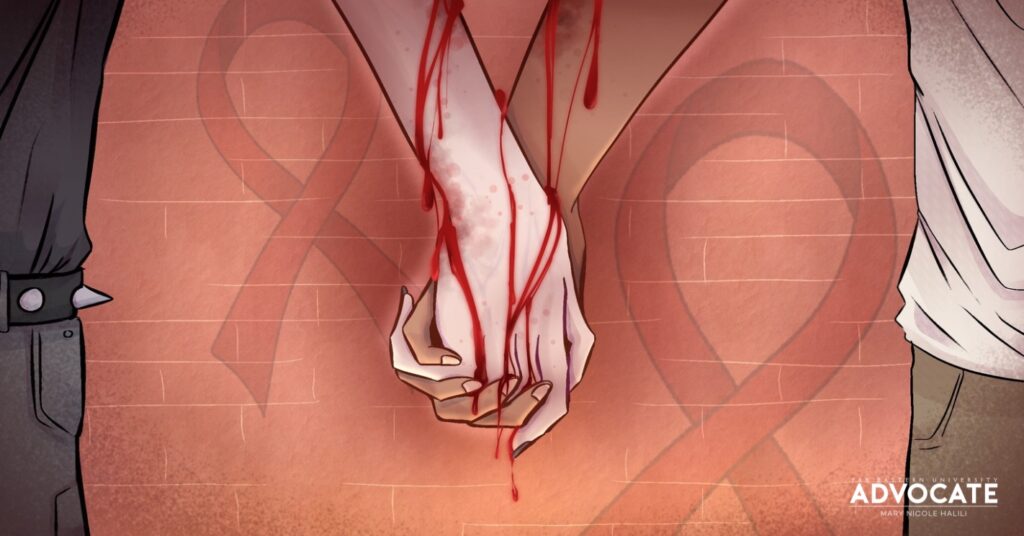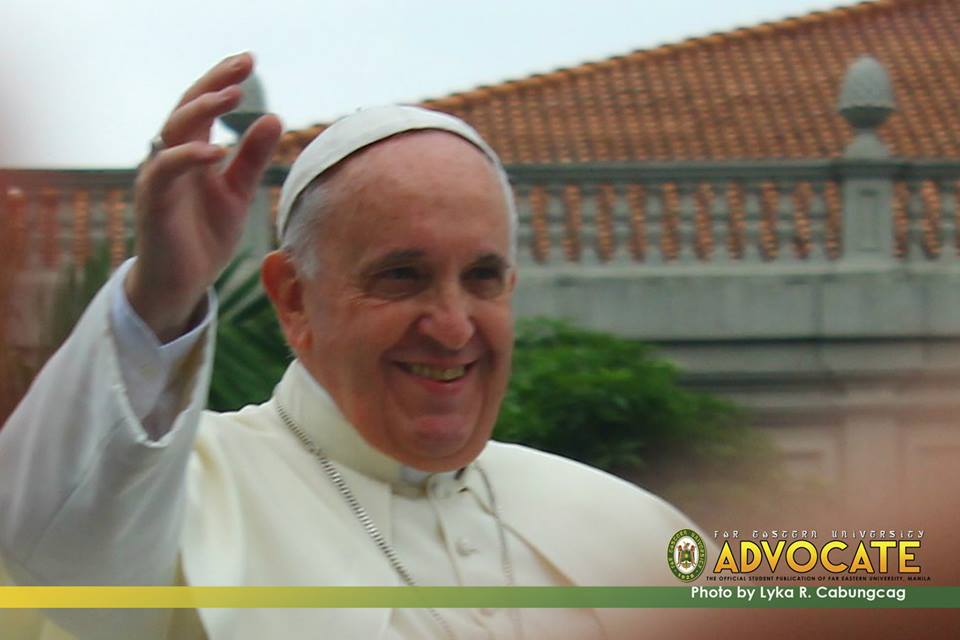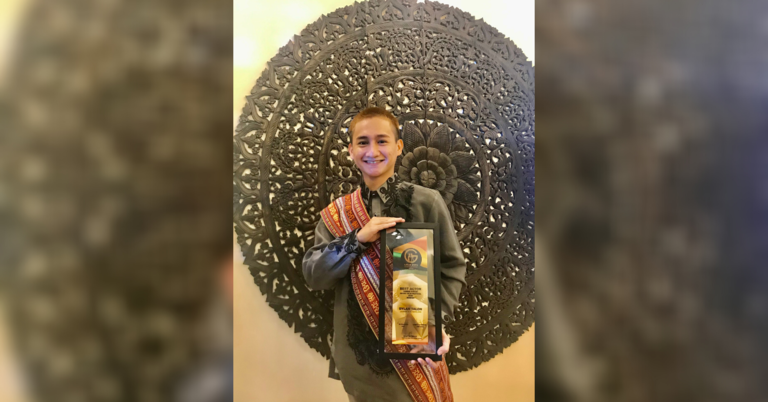
CONQuest 2023 hypes 3-day esports weekend
- June 01, 2023 06:21
FEU Advocate
July 14, 2025 18:03

By Eunhice Corpuz
More than just rising numbers, the increasing number of HIV cases in the country is a demonstration of a critical public health crisis demanding immediate and comprehensive action. As it continues to quietly threaten lives, the slow progress in fighting the disease, inefficient implementation of existing laws, lack of sex education, and low funding for test kits only exacerbate the problem. These failures allow HIV to remain a deep-seated societal taboo, perpetuating stigma against the people living with the virus.
The Department of Health (DOH) reported an alarming surge in HIV cases across the country, prompting the government to declare HIV as a national public health emergency, last June.
HIV cases among individuals aged 15 to 25 rose by 500 percent, a startling increase that underscores the vulnerability of Filipino youth.
Misinformation breeds propaganda
Among the most persistent myths is that HIV is a death sentence. But with modern treatments like antiretroviral therapy (ART), the virus has become manageable, at least, medically. Social death, however, remains real.
While acknowledging the DOH’s transparency on the alarming cases of HIV, Far Eastern University (FEU) Sexuality and Gender Alliance (SAGA) President Neo Anthony Toralde criticized the government’s insufficient action in addressing the rising cases.
“With the recent reports from DOH, I first saw its positive side by learning that there are now more people who are open to being tested. However, despite the progress we're seeing, there are still major gaps in the government’s HIV response. Access to testing and treatment is uneven, especially in rural and far areas where clinics and services are lacking,” he said.
As he revealed that several youth are receptive to being tested, it demonstrates how this initiative can decrease the taboo status of HIV.
Hence, the president also pointed out that despite rising cases among the youth and LGBTQIA+ individuals, only a few programs are tailored to their specific needs, and they contribute to a significant part of the cases. Furthermore, he asserted that people who are part of the queer community and living with HIV encounter a double burden in managing their health.
“As a member of the community, I saw how LGBTQ+ individuals living with HIV in the Philippines still face a double burden as they manage their health while navigating discrimination from society and sometimes even from their own families,” Toralde described.
The fear of being outed or losing employment prevents many from getting tested or treated, especially in conservative workplaces and unsupportive households.
“Many still fear losing jobs, relationships, or safety if they disclose their status. This reality makes it harder for them to seek testing, treatment, or emotional support,” the SAGA President added.
Toralde emphasized that stigma still exists because of the outdated information of HIV only being linked to the LGBTQIA+ community.
“And I think the stigma towards our community exists because of outdated narratives that position HIV as a ‘gay disease.’ And despite decades of evidence proving HIV can affect anyone, societal biases keep reinforcing the link to our community,” he asserted.
People tend to think that when they are infected with HIV, it is a detrimental condition to their life. The SAGA President himself debunked this claim, as the virus can be treated with several treatments.
“One common misconception is that HIV equals death, when in reality, people living with HIV who have access to antiretroviral therapy or ART can live long, healthy lives,” Toralde conveyed.
Acknowledging isolated cases
Despite being in a different era, many individuals living with HIV remain marginalized, struggling to find acceptance and a place within society due to persistent stigma and discrimination.
Medical Technology Department faculty and registered medical technologist Mark Cueto shared that common HIV misconceptions include how the virus is transmitted and the false belief that shared items can spread infection.
“So, the most misunderstood mode of transmission is kapag daw nahawaan ka ng HIV, kunwari nakagat ka ng kasama mo sa bahay may HIV ka na rin. Also, is that ‘yung kailangan i-sterilize ‘yung ginamit ng mga taong may HIV and AIDS . Para siyang nakakahawang sakit na kapag ginamit mo ‘yung mga ‘yun, mahahawa ka na rin, which is not a good practice nung time na ‘yun,” the faculty member explained.
Nowadays, people still tend to think that HIV and AIDS are the same thing; however, they have differences. HIV is the virus that one acquires and when it gets severe, it can cause AIDS, weakening the immunity of the infected person.
Also, Cueto stressed that unprotected sexual activities are a greater factor of getting HIV regardless of a person’s sexual orientation. This crucial distinction serves to dismantle the persistent misconception that homosexual men are inherently more susceptible to the virus.
“So nagkakaroon ng stigma na kapag bakla or male to male ‘yung sex orientation, mas lalong magkakaroon ng HIV, which is yes may mga possibilities pero hindi naman lagi especially when protected,” he revealed.
He also reiterated what Toralde mentioned that while there is no cure, HIV is manageable with ART.
“Wala tayong direct treatment for HIV. Ang meron lang tayo is ‘yung pre-exposure prophylaxis na kapag ininom mo ‘yun at gusto mo pang ituloy ‘yung buhay with sex, puwede mo siyang inumin,” Cueto said.
The medical technologist emphasized that HIV is the only disease in the Philippines governed by a dedicated law due to being prone to discrimination and stigmatization, specifically Republic Act (RA) 11166 or the Philippine HIV and AIDS Policy Act of 2018.
“Even though sabi nga natin ang tagal-tagal na ng HIV law, there are two laws already regarding the HIV and that is the only disease in the Philippines na may sariling law. Kasi nga they are prone to stigma and different discrimination,” he remarked.
While RA 11166 provides a strong legal framework, its full potential is undermined by a critical barrier: the widespread public ignorance and lack of understanding of the law’s provisions.
Laws and treatments are only part of the contributing factors in conquering the virus. Without dismantling the social narratives passed down through generations, progress stalls before it reaches those who need it most.
Pathways to progress
Equitable treatment and the chance to live a full life are non-negotiable rights. For people living with HIV, true progress against the virus lies in unwavering acknowledgement, consistent funding for test kits, and robust enforcement of efficient policies. These are not mere options but critical avenues to fight against the virus.
Above all, the government itself must address the rise in HIV cases and lead the country toward awareness, instead of clinging to outdated beliefs.
Cueto believes that to fight the misconception, sex education should be normalized and the government should provide funds to organizations seeking to mitigate HIV such as LoveYourselfPH.
“Siguro number one is to normalize ‘yung sex education. Hindi po susubukan ng mga bata ‘yung pakikipagtalik but also for them to become aware of the consequences na mayroon ‘yung ginagawa [nilang action]. And for number two, siguro bigyan ng pondo ng government ‘yung tumataas ng cases ng HIV. Kasi hindi saklaw ng mga [non-government] organization ‘yung reach ng buong bansa,” the medical technologist emphasized.
Aside from providing support, Toralde stressed the importance of providing training for health workers on the methods of fighting against HIV and wide information campaigns.
“To maximize its impact, what our government needs is consistent funding, wide information campaigns, and training for health workers to provide the needs of HIV positive individuals,” he conveyed.
Cueto also urged the DOH to be proactive regarding this health crisis.
“That's why we are actively calling the government for a more aggressive, effective, and progressive campaign after DOH's HIV status report, and this should be a wake-up call,” the president affirmed.
Indeed, the prevalence of HIV reflects society’s ongoing refusal to confront uncomfortable truths. It lays bare the devastating compromises and objectification forced upon people living with the virus, leaving them isolated by fear. Thus, this is an ongoing battle; it ignites the fire to empower awareness and dismantle misconceptions. For if we fail to understand and acknowledge their fight, the virus will not be the only one that claims lives, but also the sheer unbeatable weight of discrimination.
(Illustration by Mary Nicole Halili/FEU Advocate)









